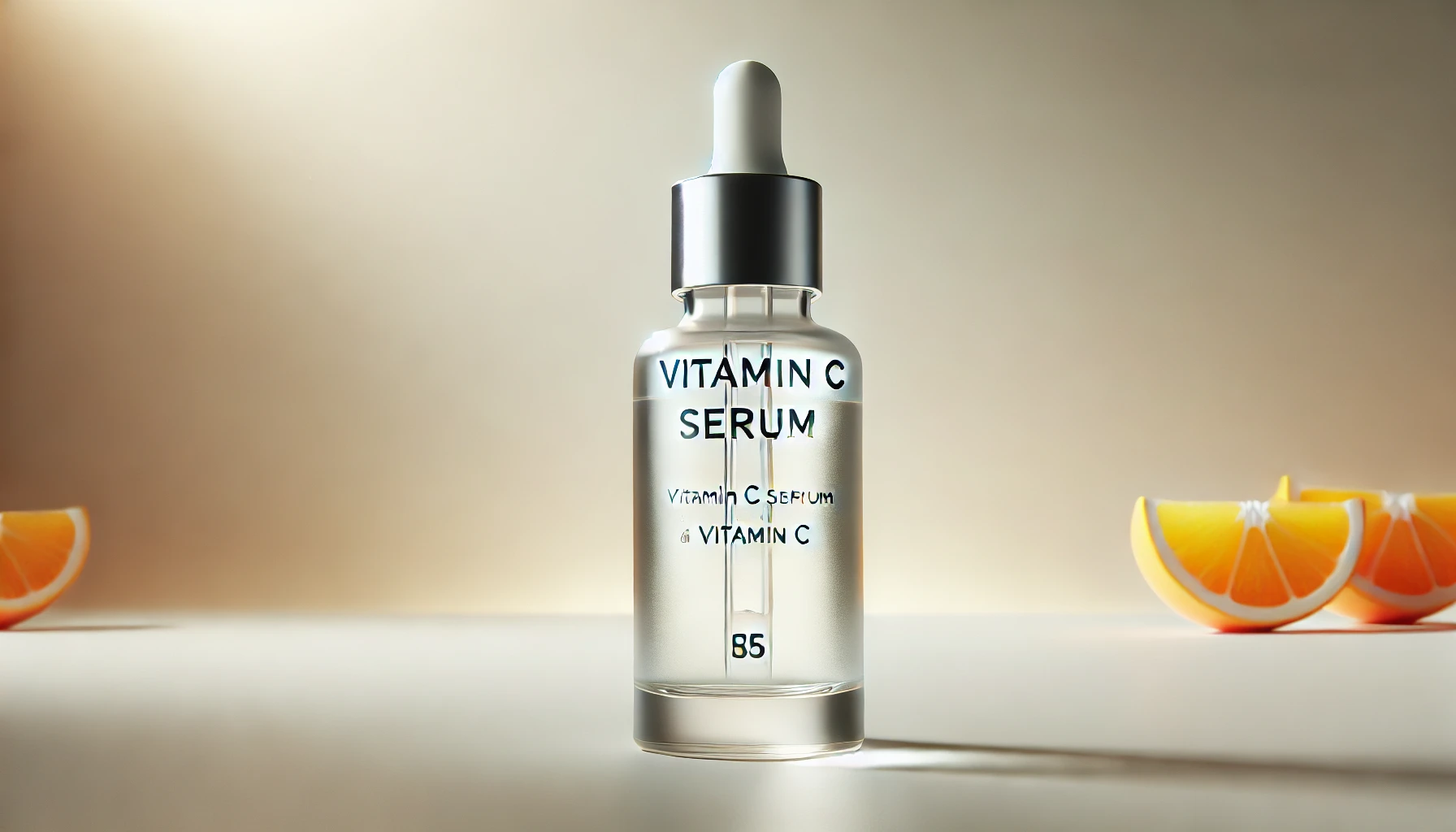The Ultimate Guide to Vitamin C Serum

What is Vitamin C Serum?
Vitamin C serum is a skincare product that contains ascorbic acid, a potent antioxidant known for its ability to brighten and protect the skin. This serum is celebrated for its anti-aging and skin-rejuvenating properties, making it a staple in many skincare routines.
Importance of Vitamin C in Skincare
Vitamin C plays a crucial role in collagen synthesis and skin repair. It helps combat free radicals and environmental damage, promoting a youthful and radiant complexion.
2. Benefits of Vitamin C Serum
Anti-Aging Properties
Vitamin C serum is renowned for its anti-aging benefits. It helps reduce the appearance of fine lines and wrinkles by stimulating collagen production, which improves skin elasticity and firmness.
Brightening and Even Skin Tone
One of the most notable benefits of Vitamin C serum is its ability to brighten the skin and even out skin tone. It reduces the appearance of dark spots and hyperpigmentation, resulting in a more uniform complexion.
Reducing Hyperpigmentation
Hyperpigmentation, including sun spots and age spots, can be effectively addressed with Vitamin C serum. It inhibits melanin production, which helps fade these unwanted dark spots over time.
Hydration and Moisture
Vitamin C serums often contain additional hydrating ingredients that enhance moisture retention. This added hydration helps keep the skin plump and supple.
3. How Vitamin C Serum Works
Mechanism of Action
Vitamin C neutralizes free radicals generated by UV radiation and pollution. This action prevents oxidative stress that can lead to premature aging. Additionally, it boosts collagen synthesis, aiding in skin repair and renewal.
Types of Vitamin C Used in Serums
Several forms of Vitamin C are used in serums, including ascorbic acid, sodium ascorbyl phosphate, and ascorbyl palmitate. Each type has different stability and effectiveness levels, influencing how well the serum performs.
4. Choosing the Right Vitamin C Serum
Different Forms of Vitamin C
When selecting a Vitamin C serum, consider the form of Vitamin C used. L-ascorbic acid is the most potent form, while other derivatives may offer more stability and a gentler effect on the skin.
Concentration and Stability
The concentration of Vitamin C in the serum can range from 10% to 20%. Higher concentrations are more effective but may also be more irritating. Stability is crucial, so look for serums in opaque or dark bottles to prevent oxidation.
Complementary Ingredients
Look for serums that combine Vitamin C with other beneficial ingredients like hyaluronic acid, vitamin E, or ferulic acid. These combinations can enhance the serum’s effectiveness and provide additional skin benefits.
5. Application Tips and Techniques
How to Apply Vitamin C Serum
Apply Vitamin C serum to clean, dry skin. Use a few drops and gently pat it onto the face, neck, and décolleté. Follow with a moisturizer to lock in the serum’s benefits.
Frequency and Amount
For optimal results, apply Vitamin C serum once or twice daily. A pea-sized amount is usually sufficient for the entire face.
Combining with Other Skincare Products
Vitamin C serum can be combined with other skincare products like retinoids and sunscreens. However, avoid using it with products containing high concentrations of alpha hydroxy acids (AHAs) or beta hydroxy acids (BHAs), which can cause irritation.
6. Potential Side Effects and Precautions
Common Side Effects
Some users may experience redness, tingling, or dryness when using Vitamin C serum. These side effects are usually temporary and subside as the skin adjusts.
How to Avoid Irritation
To minimize irritation, start with a lower concentration and gradually increase as your skin builds tolerance. Always patch-test a new serum before applying it to your face.
7. Expert Insights
Quotes from Dermatologists
“Vitamin C is a powerful antioxidant that can make a significant difference in your skin’s appearance over time,” says Dr. Jane Smith, a board-certified dermatologist. “It’s especially effective in reducing signs of aging and sun damage.”
Case Studies of Effective Use
Recent studies show that consistent use of Vitamin C serum can lead to noticeable improvements in skin texture and tone. For instance, a six-month study found a 30% reduction in the appearance of fine lines among participants using a high-concentration Vitamin C serum.
8. Future Trends in Vitamin C Serum
Innovations in Formulation
Future formulations of Vitamin C serums may include advanced delivery systems that enhance absorption and stability. Innovations such as encapsulated Vitamin C or time-release technologies are on the horizon.
Emerging Ingredients
New ingredients that complement Vitamin C, like plant-based extracts and peptides, are being researched to boost the efficacy of serums and offer additional skin benefits.
9. Conclusion
Summary of Key Points
Vitamin C serum is a versatile skincare product known for its anti-aging, brightening, and hydrating properties. Choosing the right serum involves considering the form, concentration, and additional ingredients.
Final Thoughts and Recommendations
Incorporating Vitamin C serum into your daily skincare routine can lead to significant improvements in skin health and appearance. Always choose a serum based on your skin type and needs for the best results.
10. FAQ
What percentage of Vitamin C is most effective?
A concentration of 10-20% Vitamin C is typically effective. Higher concentrations may offer more benefits but can also increase the risk of irritation.
Can Vitamin C serum be used with other serums?
Yes, Vitamin C serum can be used with other serums, such as those containing hyaluronic acid or peptides. Avoid using it with strong exfoliants or acidic products to prevent irritation.
How long does it take to see results?
Most users notice improvements in skin texture and tone within 4-6 weeks of regular use. For more significant changes, continued use over several months is recommended.

